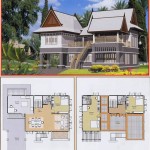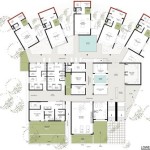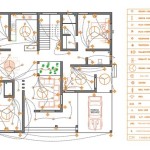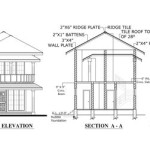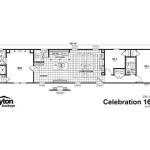Essential Aspects of Tiny Square House Plans
With the growing popularity of sustainable and efficient living, tiny square house plans have become increasingly sought-after. These compact and functional homes offer a unique blend of comfort, affordability, and simplicity. Understanding the essential aspects of tiny square house plans is crucial for anyone considering this innovative housing option.
Defining Tiny Square House Plans
Tiny square house plans typically refer to homes with an area of less than 1,000 square feet. The defining characteristic is their square or near-square shape, which maximizes space utilization and minimizes energy loss. Square house plans allow for efficient furniture placement, creating a well-organized and comfortable living environment.
Benefits of Tiny Square House Plans
Tiny square house plans offer numerous advantages, including:
- Affordability: Smaller homes require less building materials and labor, resulting in lower construction costs.
- Sustainability: Reduced square footage means decreased energy consumption, lower carbon emissions, and a smaller ecological footprint.
- Low Maintenance: Smaller homes require less cleaning, maintenance, and repairs, saving both time and money.
- Flexibility: Tiny square house plans can be customized to suit individual needs and lifestyles, from off-grid living to urban infill.
Essential Design Considerations
Designing a tiny square house plan requires careful consideration of several key elements:
1. Space Planning:
Maximizing space utilization is paramount. Utilize vertical space with lofts and built-in storage, create open floor plans to enhance flow, and use multi-functional furniture to optimize every corner.
2. Natural Lighting:
Natural lighting is essential for creating a bright and airy living space. Incorporate large windows that allow ample sunlight, consider skylights for additional illumination, and use reflective surfaces to bounce light around.
3. Ventilation:
Proper ventilation ensures a healthy and comfortable indoor environment. Include cross-ventilation with windows on opposite sides, install ceiling fans, and consider mechanical ventilation systems to circulate fresh air.
4. Storage:
Storage solutions are crucial in tiny house plans. Utilize built-in cabinets, drawers, and shelves throughout the home. Consider using vertical space for storage, such as folding attic stairs and overhead hanging racks.
5. Aesthetic Appeal:
While functionality is important, don't neglect aesthetics. Choose finishes and materials that reflect your style and create a welcoming and inspiring living space. Consider incorporating natural elements, such as wood and stone, to enhance the home's organic appeal.
Conclusion
Tiny square house plans offer a unique and sustainable approach to homeownership. By adhering to the essential design considerations outlined above, you can create a comfortable, efficient, and stylish home that meets your specific needs and aspirations. Embracing the principles of tiny living can lead to a life of greater simplicity, affordability, and environmental consciousness.

Small House Floor Plan Square Footprint Lends Itself To Mini Villa Design Plans Tiny

Square Earthbag House Plans Small Tiny Floor

480 Sq Ft House Plan 2 Bed 1 Bath Small Vacation Home

Small House Plans Economical Floor

Regina 192 Sq Ft Cabin Plan Tiny House Floor Plans Guest Small

Tiny Home Plans With Big Curb Appeal Blog Eplans Com

10 Small House Plans With Open Floor Blog Homeplans Com

27 Adorable Free Tiny House Floor Plans Craft Mart

House Plan 692 00228 Traditional 832 Square Feet 2 Bedrooms 1 Bathroom Tiny Floor Plans Bedroom Small

Tiny Home Plan Under 600 Square Feet 560019tcd Architectural Designs House Plans

